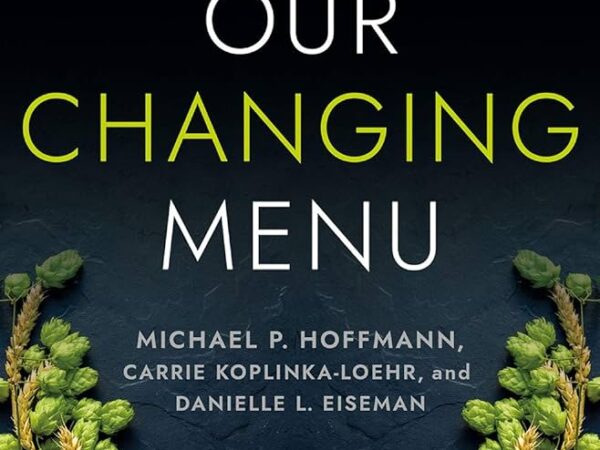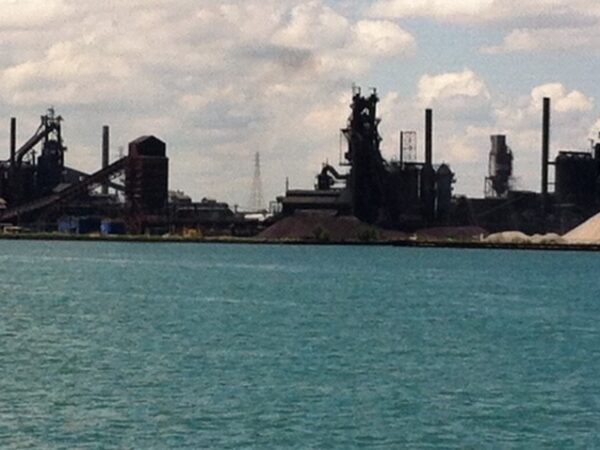
“Wrong decision” says Great Lakes mayor; Poor urban dwellers at increased risk says former Obama EPA exec
The Trump administration took the first steps on Tuesday to get rid of the Clean Power Plan, the center piece of President Barack Obama’s climate change initiative.
In a widely-expected move, U.S. Environmental Protection Agency Administrator Scott Pruitt issued a formal notice to repeal the plan.
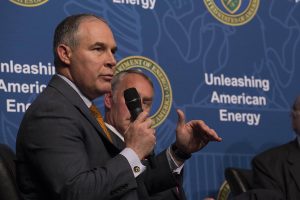
Administrator, Environmental Protection Agency, Scott Pruitt at roundtable discussion on Energy Dominance, courtesy of U.S. Department of Energy
Pruitt said in a press release that Obama’s EPA exceeded its authority when it promoted the rule and that he is “committed to righting the wrongs of the Obama administration by cleaning the regulatory slate.”
Pruitt illustrated what he says were the errors of the Obama Clean Power Plan including uncertain and controversial analysis of the costs and benefits of the plan.
Pruitt said EPA would provide a “wide range of analysis scenarios to the public.”
He was vague on whether Trump would replace Obama’s rule saying “any replacement rule will be done carefully, properly, and with humility, by listening to all those affected by the rule.”
Differing inside perspective
An architect of Obama’s plan sees it differently.
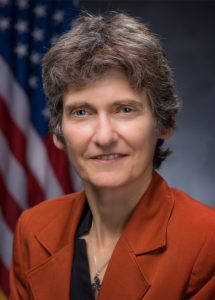
Janet McCabe, Senior Law Fellow Environmental Policy and Law Center, courtesy of Eric Vance
Janet McCabe was on the EPA team that wrote the Clean Power Plan and she stands by her work and that of her colleagues.
“The Clean Power Plan Rule was developed by a team of very highly skilled and expert career staff,” McCabe told Great Lakes Now.
She said President Obama was engaged on the issue giving it a high priority and that was evident to McCabe in her meetings with the president.
McCabe served as a high-level administrator in the Obama EPA and is now a Senior Law Fellow with the Chicago-based Environmental Law & Policy Center.
Urban areas at risk?
Great Lakes Now asked McCabe about any impact on the region’s cities if the Clean Power Plan is eventually repealed.
“I can’t say to people in Chicago, Cleveland or Detroit that their living conditions next year based on climate will be negatively impacted if the Clean Power Plan doesn’t go forward,” McCabe responded.
“But over time, the impacts of climate change on people who live in concentrated areas like cities will be significant,” she said.
“There will be increased exposure to extreme heat and flooding which can be devastating, especially for poor people who have fewer coping resources. That will be a big issue.”
Five million people live in major U.S. cities bordering the Great Lakes with 2.7 million in Chicago alone. The population expands to 15 million when nearby suburban areas are included according to census data.
“Wrong decision”
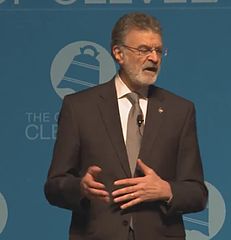
Cleveland Mayor Frank Jackson, courtesy of City Club of Cleveland
The region’s mayors were quick to react to the Trump/Pruitt move.
Cleveland Mayor Frank Jackson in a statement said it was the “wrong decision.” Jackson said it “threatens the health and safety of families and communities by worsening climate change and increasing dangerous air pollution.”
Chicago Mayor Rahm Emanuel’s statement called the rollback “a blatant attempt to satisfy special interests, and will turn back the clock on progress made across the country in reducing emissions while developing a 21st century economy and creating jobs.”
Both Jackson and Emanuel said their cities will continue to work on climate change initiatives in process.
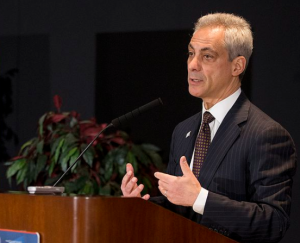
Chicago Mayor Rahm Emanuel, courtesy of US Department of Labor
As the primary component of Obama’s climate strategy, the Clean Power Plan has garnered most of the Trump administration’s rollback focus but it’s part of a wider strategy to eliminate regulations, a key Trump campaign pledge.
But former EPA executive McCabe says we should also “pay attention to other Trump environmental rollbacks like the Clean Water Rule” which is important to the Great Lakes region.
“People here relate to water in an incredible way. Water is peace, beauty and life itself,” she said.
The Clean Water Rule has been subjected to a similar repeal process by the EPA. Agriculture interests led by farm bureaus have been the lead lobbyists against the rule.
The public will have 60 days to comment on the proposed repeal of the Clean Power Plan. Legal challenges to repeal by environmental groups are expected.



